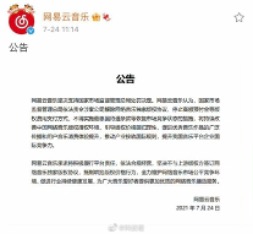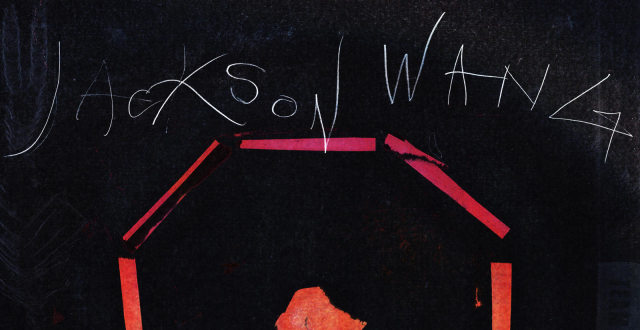Fan fiction represents greater openness to copyright and a gradual relaxation of media control. How does the Chinese government guide and regulate the market to avoid an “over-entertainment” ?
Referring to the changes in China’s copyright policy, Zile Zhang says, “In the past, China’s social and ideological consciousness dictated very strict government control over copyright, and the content of publications was subject to strict censorship.” As various industries in China were in the process of development at the time, the writing would have guided the public and possibly inflamed their emotions, making it impossible to implement the development plans set by the government.
Entertainment was a normal spiritual need of the people. The recreational market developed in response to that need, so a diverse range of cultural industries emerged. China’s original copyright law developed with the market ideology, while the improvement of copyright law gradually tended to democratise.
However, in recent years, because of the rapid development of the Internet, the dissemination of cultural works has been extended to the Internet, which has helped a lot to develop the propaganda and cultural industry. But at the same time, it has also brought a huge problem of copyright protection. Wenting Zuo mentioned that opening some of the copyright to fans would be easier in terms of publicity, but sometimes works created by fans, such as fan fiction, can have a negative impact on the image of the star.
“The division of copyright on fan fiction has always been a major headache.” Zile Zhang said, “The vast majority of fan fiction in China are legally infringing. But it doesn’t matter too much. On the one hand, most of them aren’t profitable, and on another hand, even if they were, the number of them published is so small that it’s not worthwhile for copyright owners to pursue them, the workload of pursuing them one by one is just too great and not proportional to the revenue gained.”
For some of fan-fic video clips, the creation of fan-fic novels is exempt issues not covered by copyright law. The copyright for these works should be vested in the creator, but the material used by the creator infringes on the property rights of the star and the publishing company, so it is impossible to draw a clear line. At the same time, the problem that may arise is that there is no copyright in works of the fan-fiction. In all trials concerning copyright in China, the first step is to prove whether copyright exists between the infringing party and the infringed party. If one party does not exist, the court can simply dismiss

In the case of copyright holders, i.e., production companies and agencies, from a profit point of view, they are happy to see the creation of the fan-fic productions. Fan-fic works are disguised propaganda by the copyright holders.
As the country democratises and the entertainment industry becomes more democratic, public opinion and interest become part of the consideration of the mass media and the capitalists.
However, in the entertainment industry, the proportion of fans is very high. So, they have a part of the media discourse. But because of the different position, a potential conflict arises between the media discourse of fans and traditional media.
Fan media have a more multifaceted understanding of their idols and form a kind of confrontation with traditional media in shaping the image of their idols, as fans’ admiration for their idols leads to many of their words being strongly emotional. Therefore, some fan’s words are not objective and truthful, while mass media tend to report on stars from the perspective of a third party, which creates a conflicting framework for fan media discourse.
In order to promote the improvement of the copyright, China has officially launched a copyright sharing licence scheme. Zile Zhang explains the agreement in terms of Chinese legal recognition “The Creative Commons agreement is only a proposal in China and does not have the legal effect of forcing others to comply. This has led to copyright abuse in China, and the only thing the public can do is to make this agreement known to more people. Essentially, that means to get users to resist piracy and copyright abuse consciously.”
In order to collect the views of more professionals about the introduction of the Creative Commons license in China, I posted this question on a forum and invited some professionals to answer it.
One user, who specialises in anime copyright protection, said that while China is still in its infancy, there are still many people taking advantage of open copyright. “In a way, the Creative Commons agreement is just a nice expectation. People in China often take advantage of the Creative Commons agreement, for example, by making a film or TV series out of a literary work under the Creative Commons agreement and refusing to honour the Creative Commons agreement. There is still a long way to go to promote this agreement in the country.”
“The balance between the interests of copyright holders and those who distribute and exploit their works is always at the core of copyright protection,” says a user with many years of experience in production, ” it is not enough to rely on public awareness the opening up of copyright management needs to be promoted by both capital and the state, but right now the capitalists in the country don’t care about public opinion in this area unless it affects their profitability.”
The latest revision of the copyright law in 2021 has made copyright rules more democratic and open, adding several provisions relating to the distribution of information on the Internet. There are two rules closely related to the entertainment industry, the first being the right of the public to access works at the time and place of their choice, and the other stipulating that copyright management organisations should negotiate to and determine the use of copyright with users.
China’s government is also making great efforts to open up copyright. In July 2021, the State Administration of Market Supervision issued a notice letter to music company such like QQ Music about copyright cooperation agreement cancellation, urging QQ Music to lift its copyright monopoly and open up licensing to other operators as soon as possible.
In August, Tencent (QQ Music) issued a statement on the right to exclusive licensing of music copyrights, explicitly waiving its rights with the relevant upstream copyright parties regarding the exclusive licensing of music copyrights and informing the relevant upstream copyright parties that they could license their music copyrights to other operators on their own. This statement announced the end of the era of Tencent’s monopoly on music rights.


Previously, QQ Music had a monopoly on 90% of the music market, and people who wanted to listen to songs could only sign up for a membership at QQ Music and paying a fee. Other platforms were unable to launch the same songs because of exclusive rights, which was not only unfair to the market competition but also to the music industry.
“The purpose of protecting music copyright is to encourage creativity, but the current Chinese music copyright market is very fickle due to high royalties. Just like the fees for stars, which are really high but do not produce good quality. In recent years the Chinese music market has not seen many high-quality music works emerge. In the just-released management of QQ Music copyright is more powerful for music producers, with more channels for distribution, good musicians and high-quality music works will be more easily discovered.” Jane Chen maintains a positive attitude towards the future music market.
While entertainment is moving in a more democratic direction, the country is also avoiding the creation of generalised entertainment and guiding the public towards a higher level of appreciation.
In late August, all music playing platforms issued an announcement that it would cancel all celebrity star lists and limit the purchase of all paid digital albums. One account can only buy one digital albums, avoiding marketing campaigns that stimulate fan consumption.
“The emergence of the digital music album format started out as a way to change the dilemma of the declining physical music industry by supporting music creation and copyright protection through a paid format. But with the development of traffic, digital albums have gradually turned into a tool for capital to enrich themselves in a big way, distorting the logic of works in the entire music industry.”

Jane Chen has a positive attitude towards the future of the market with the enactment of this policy. This is because it represents a change in the “flow-only” and “marketing-only” market. More good works will be seen, and marketing will be more work-based, rather than just stimulating sales.
“A rational consumer ecology is more conducive to the development of singers, and after the de-fluxification, the promotion strategy for songs will be more effective. Before this, our marketing programmes often failed to achieve the desired effect under the frenzied consumption of the fan community. For example, there are some very popular stars whose songs hang on the top of the lists for months or even a year, our singers’ new songs is difficult to be exposed and seen by the public.”

Television entertainment is also impact by the flow. Luckily, in recent years, the country has been trying to give the market back to the public by letting them choose good productions, rather than letting capital choose the traffic to the public.
The low-sensitivity politics of life has become an important channel for the democratisation of Chinese television entertainment programmes, which not only actively empowers the public but also awakens the public’s sense of self-subjectivity and enacts multi-dimensional public participation through multiple media channels.
The massive public participation effect that its continuity has triggered is of great significance to Chinese society in the current democratisation process.”
“The popularisation of entertainment reflects the government’s openness to media control, and the prosperity of the cultural industry is a reflection of a country’s economy. The country is now guided by the right mainstream values, and whether its variety shows or TV series and] movies now, there has been a great improvement in quality overall. There are many pros and cons to any one thing, and this weighing of pros and cons is not something that can be controlled by the government, nor by the common people, but is advocated by the democratisation of a country.” A university journalism and communication school tutor, Chuanxiang Zhang, explained.
The policy for the cultural industry is still further improved with the development of democratisation, and it is important for the state to guide the market, which can avoid the creation of a fickle way of thinking and pan-entertainment of the public’s entertainment.
